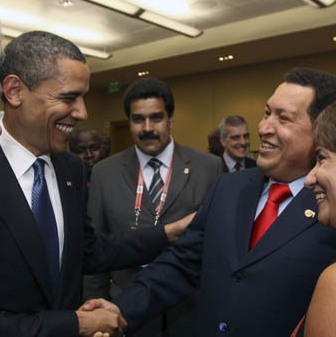Those Turks are a wild bunch, seems they are out for the money. The Syrian civil war has caused much strife in the Middle East. Refugees entering countries all over Europe including Turkey. Muslims running for their lives, whole families fleeing the Russian-Assad poison gas experiment. Many ending up in Turkey; now that the war is over, Turkey wants them to go home. Nice guys those Turks, they have no empathy for their brethren. If it effects the Turkey pocket book they say NYET. Get out of my town, we don’t want you here. You cost us money. Call them NIMBY Turks.
Ekrem Imamoglu, the CHP mayoral candidate for Istanbul, said that “we want Syrians to go back.” This could have serious effect on the 555,000 registered Syrians living in the city.
“There is indeed palpable reaction towards the refugees in general in certain provinces, especially in south and southeast Anatolia, where in some cases the number of Syrians exceeds that of the locals,” Mehmet Enes Beser, an expert on migration issues, told Xinhua.
Turkish President Recep Tayyip Erdogan opened his country’s border to Syrian refugees when the war began in Syria in 2011 and has declared that his country had already spent 35 billion US dollars for resettling them. He has changed his discourse in recent months, speaking of an assisted voluntary return of the Syrian refugees.
Some 320,000 Syrians have so far returned to their hometowns as the result of two Turkish military operations in northern Syria to wipe out terrorist elements, after which reconstruction started, said Turkish Interior Minister Suleyman Soylu.
A sharp economic downturn that hit Turkey last summer with a currency meltdown has also contributed to the rising tensions amid competition for jobs in the country with high unemployment and inflation rates.
Official data announced on Monday showed that the youth employment hit record 26.7 percent, the highest since 1988.
Our take is that Syrians and Turks make up a large percentage of the Pseudo Palestinian population. These so-called Psudo Palestinians were imported into Samaria and Judea at the behest of the Ottoman Empire during their reign. Most of them came in the mid 1850’s. They of course had no roots in the are until then.

In the “West Bank,” Judea is the region lying to the south of Jerusalem. The area north of Jerusalem is Samaria. … Though Arabs demand these territories back, even the names of Arab neighborhoods in Judea and Samaria, such as Bethlehem, Jericho, Hebron and others reaffirm the land’s Biblical Jewish roots.
As the Ottomans extended the central government’s new military, municipal, judicial, and educational systems to Palestine, the country also witnessed a marked increase in foreign settlements and colonies—French, Russian, and German. By far the most important, in spite of their initial numerical insignificance, were the Jewish agricultural settlements, which foreshadowed later Zionist endeavours to establish a Jewish national home
“The land in Palestine was lacking in people to till its fertile soil”. Thomas Shaw, British Archaeologist, ‘Travels and Observations’, London, 1767 “Palestine is a ruined and desolate land”. Count Constantine François Volney, French author and historian , ‘Travels Through Syria and Egypt in years 1783, 1784, 1785’, London 1788, vol. 2, p142 “The country is in a considerable degree empty of inhabitants and therefore its greatest need is of a body of population”. James Finn, British Consul, Report to Foreign Office, 1857 “Above all other countries in the world, [Palestine] is now a land of ruins. In Judea it is hardly an exaggeration to say that…for miles and miles there is no appearance of present life or habitation”. Cook’s Tourist Handbook for Palestine and Syria, Thomas Cook & Son, Ludgate Circus, E.C, 1876 “A desolation is here that not even imagination can grace with the pomp of life and action. We never saw a human being on the whole route”. Mark Twain, American author and humorist, ‘Innocents Abroad’, 1869
In 1887-88, the area that later became Mandatory Palestine was divided into three administrative units: the district (sanjak) of Jerusalem, comprising the southern half of the country, and the two northern districts of Nablus and Acre. The two northern districts were administratively attached to the province (vilayet) of Beirut, but because of its importance to the Ottomans, the district of Jerusalem was governed directly by Constantinople. The area across the Jordan River (Trans-Jordan or Jordan) was administratively separate from the Palestinian districts and formed part of the province of Syria, with Damascus as its capital. At this time the population of the three Palestinian districts was ca. 600,000 (THE MAJORITY OF WHICH WERE IMPORTED BY THE OTTOMANS), about 10 percent of whom were Christians and the rest mostly Sunnite Muslims. The Jews numbered about 25,000; the majority were deeply religious, devoting themselves to prayer and contemplation and deliberately eschewing employment or agricultural activity. Until the advent of Zionism, relations between Palestinians and Jews were stable and peaceful, mellowed by more than a millennium of coexistence and often shared adversity.
From 1900 to 1948
In the last years of the 19th century and the early years of the 20th, the Palestinian Arabs shared in a general Arab renaissance. Palestinians found opportunities in the service of the Ottoman Empire, and Palestinian deputies sat in the Ottoman parliaments of 1877, 1908, 1912, and 1914. Several Arabic newspapers appeared in the country before 1914. Their pages reveal that Arab nationalism and opposition to Zionism were strong among some sections of the intelligentsia even before World War I. The Arabs sought an end to Jewish immigration and to land purchases by Zionists. The number of Zionist colonies, however, mostly subsidized by the French philanthropist Edmond, baron de Rothschild, rose from 19 in 1900 to 47 in 1918, even though the majority of the Jews were town dwellers. The population of Palestine, predominantly agricultural, was about 690,000 in 1914 (535,000 Muslims; 70,000 Christians, most of whom were Arabs; and 85,000 Jews).
Those Jews and evangelical Christians who say an undivided Jerusalem should be the eternal capital of Israel have a ready answer for anyone who questions that claim: The Bible says so.
The most often-cited text is 2 Chronicles 6:5-6, wherein King Solomon quotes God as saying, “Since the day that I brought my people out of the land of Egypt, I chose no city in all the tribes of Israel in which to build a house, that my name might be there, and I chose no man as prince over my people Israel;but I have chosen Jerusalem that my name may be there and I have chosen David to be over my people Israel.”
The Bible could hardly be more clear, it would seem.
“As far as God is concerned, Jerusalem has been the eternal, undivided capital since the reign of David,” said Laurie Cardoza-Moore, whose television program, Focus on Israel, is aimed primarily at evangelical Christians like herself who see the Bible as “true and historically accurate.” God, she said, “established the boundaries of all the nations, and he chose the city of Jerusalem for himself.”
















